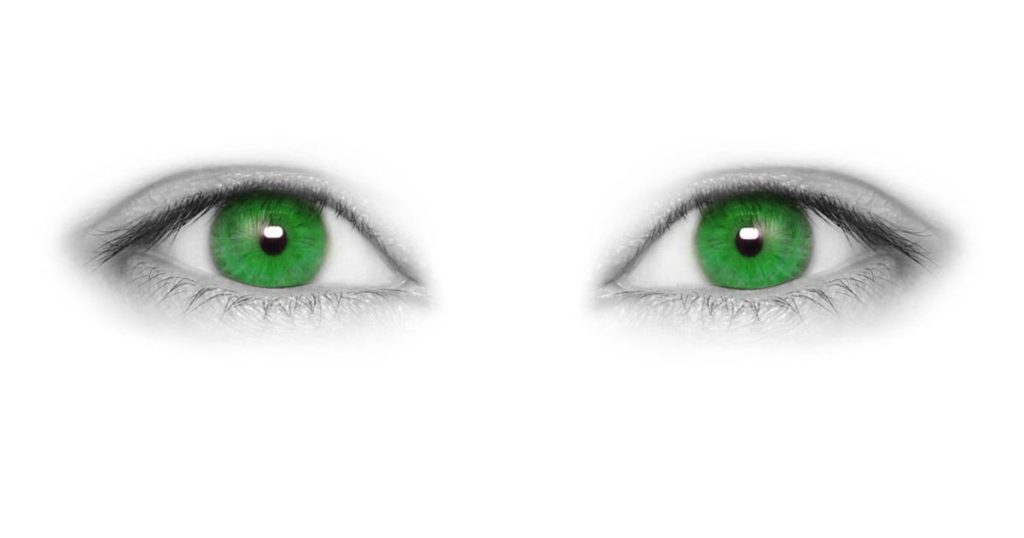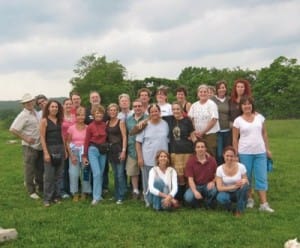Jealousy is an emotion that permeates many relationships and can drive a wedge between partners. It sometimes gets confused with its close cousin envy. They can be differentiated in this manner:
- Envy is desiring what someone else has, such as a job, a beautiful home, a relationship, or a new car.
- Jealousy is believing that there isn’t enough love, attention, affection or approval to go around and that when it is offered to someone outside the primary relationship, it will deprive oneself.
What simmers below the surface of the seething cauldron of emotions is a core belief that others have a higher attractor factor and thus are more worthy of the attention of the partner. Self-criticism fuels the fire under the pot. The shame of viewing oneself as inferior may be inseparable from the actions of the one from whom we want affirmation. Sometimes it is difficult to discern where one belief begins and the other ends. We compound the pain by being self-rejecting, when we might already feel abandoned. We tell ourselves that we deserve this loss. The harshly critical inner voice may tell us that our partner is cheating when indeed he or she is not. It may persist in wanting us to believe that even if it isn’t so at the moment, it is imminent. The origin is an erroneous belief that the source of love is another person. The threat of being deposed from primacy in a relationship is a key factor. If we have entered into a union seeking security and find it slipping from our grasp, we may hold on more ferociously. A dynamic known as distancer and pursuer explains much of what occurs when jealousy arrives on the relationship front. The interactions include:
- The distancer takes a step or more from the pursuer, commensurate with the emotional and sometimes physical proximity they sense.
- The pursuer is more often looking for validation from the partner.
- The distancer is more likely to be inclined to be independent and emotionally self-sufficient.
- The pursuer places a high value on emotional sensitivity and expression.
Are You Complete?
The Missing Piece, written by Shel Silverstein, highlights the dynamic that occurs when someone feels incomplete. Often people are ill at ease with themselves, so they seek another to fill what they perceive as a vacancy. Popular culture reinforces this, as “co-dependent love songs” glorify relationships that are highlighted by the partners possessing each other. When people feel whole and complete regardless of relationship status, jealousy has less of a chance to surface and if it does, it is more likely to be short-lived.
Who Were Your Role Models for Love?
Security in a relationship is based, in part, on role models the partners had for healthy or unhealthy interactions. Those who grew up in homes in which the bottle, needle, pill or powder took precedence over the intimate connection between the parents, are more likely to emulate that, unless a conscious decision is made to break the pattern. A child whose parents were unfaithful to their stated commitment to monogamy may seek a partner whose behaviors mirror those of the cheating parent, as counterintuitive as that may seem. It may be as simple as subconsciously aligning with that parent in order to gain their approval. Conversely, they may take on the role of the parent and seek love outside the relationship in an effort to protect themselves from the pain of being deceived themselves.
Jealousy and the Juice
A study published in Addictive Behaviors makes a solid connection between jealousy and alcohol addiction. It found that those who depended on their partner for self-worth also depended on liquid solace when confronted with feelings that they would rather bypass. “We all experience feelings of jealousy to some degree; many people are in relationships that are less than ideal, and use alcohol for different reasons,” according to Angelo DiBello, PhD, lead author of the study. “Romantic jealousy is a shared human experience, but very little work has looked at how it is related to alcohol use, misuse and associated problems. This research helps to highlight the associations between these factors and show how our emotions, thoughts and behaviors are related in potentially harmful ways.” Rather than turning to the self-soothing that substances erroneously promise, there are other options to consider.
- If you feel the green-eyed monster lurking about, ask yourself to list circumstances under which you become jealous.
- What does it mean to you that your partner is turning his or her attention to another person?
- Does it make a difference if the other person is someone familiar to you?
- How much trust is present in the relationship?
- Do you have stated boundaries with regard to what is acceptable?
- Is it comfortable for your partner to spend time with a former spouse only if it involves their children, or are there more fluid parameters?
- Are you at ease with your partner being affectionate with a friend or co-worker?
- How do you define affection? Is hugging hello and goodbye allowable, but kissing sends your jealousy meter skyrocketing?
- Are flirtatious comments indicators that jealousy is warranted?
- On a one to 10 scale, how would you rate the emotions associated with jealousy?
- On a one to 10 scale, how mild to wild would your reaction be to the feelings it evokes?
- Are you willing to let your partner know, in a calm and diplomatic manner, how you are feeling?
- Can you find a win-win solution, thus taming the green-eyed gremlin who threatens to gobble you up?
By Edie Weinstein, LSW Follow Edie at Twitter @Edie Weinstein1


